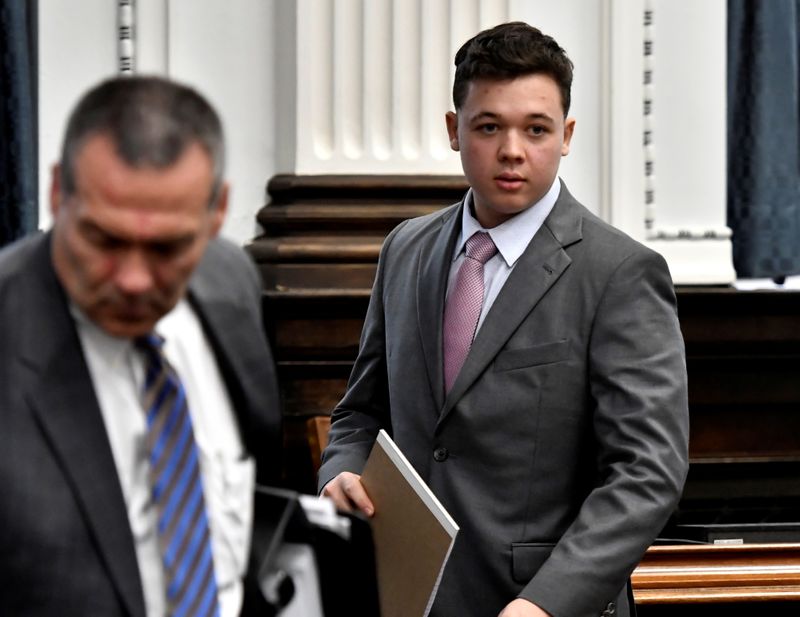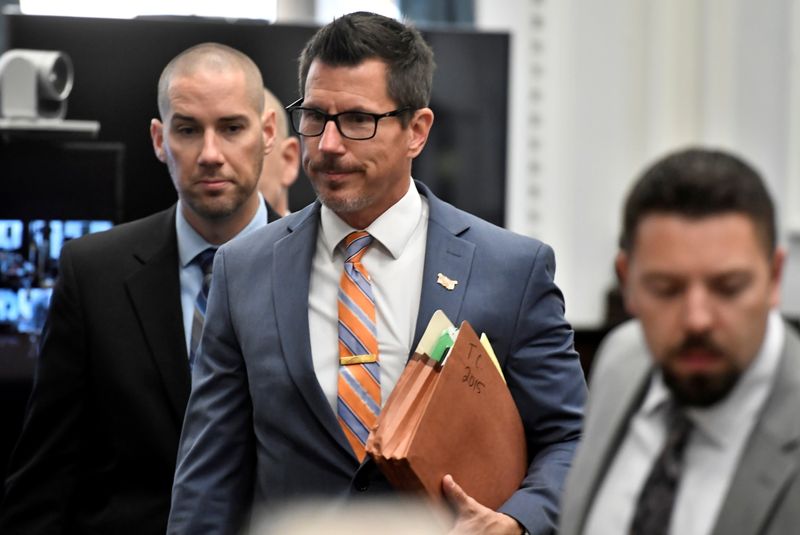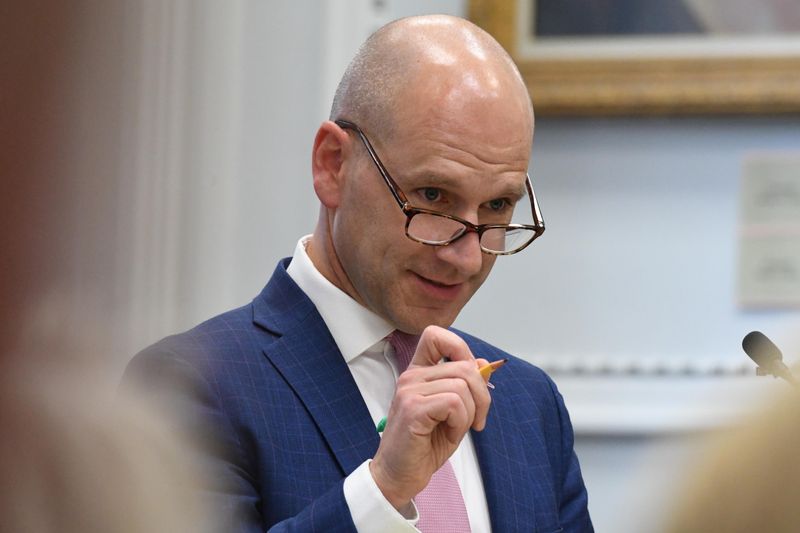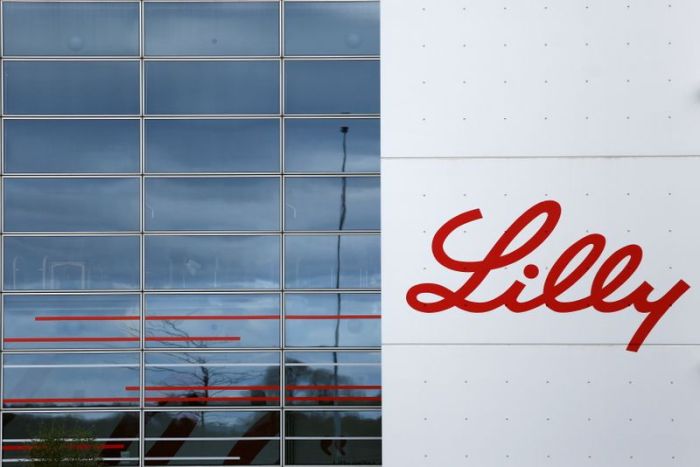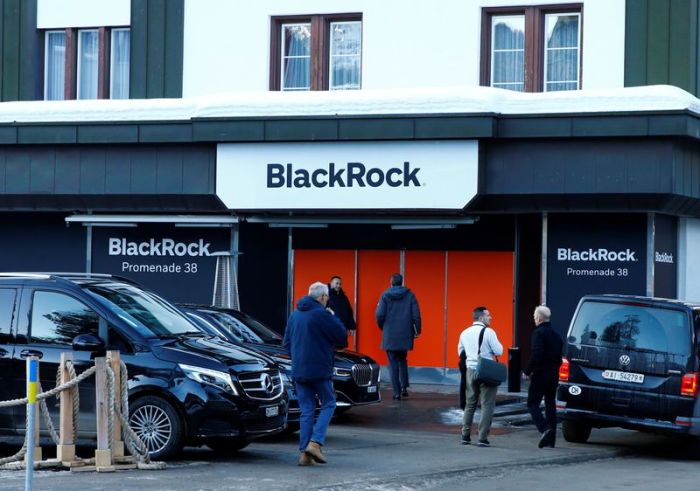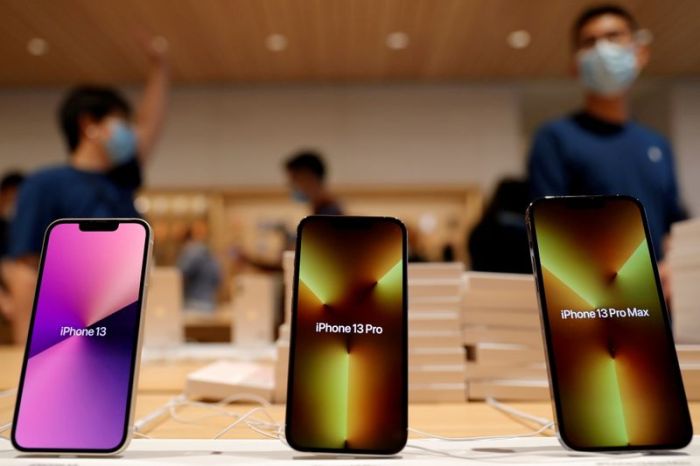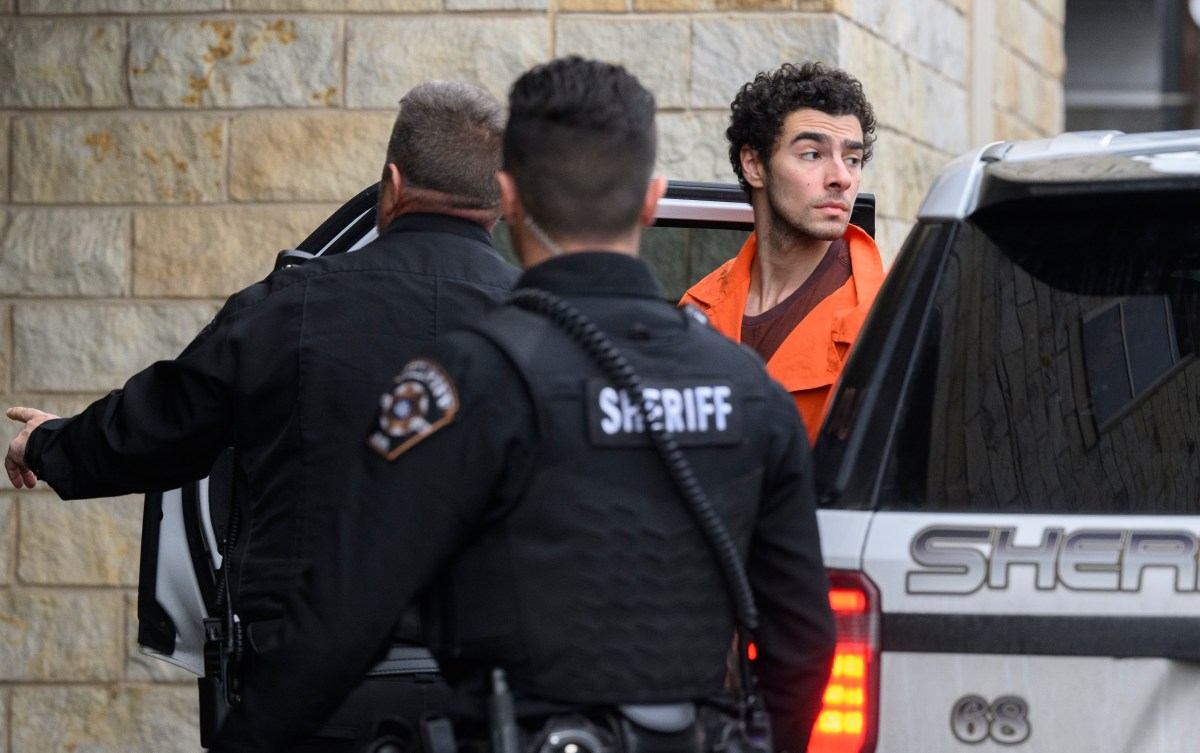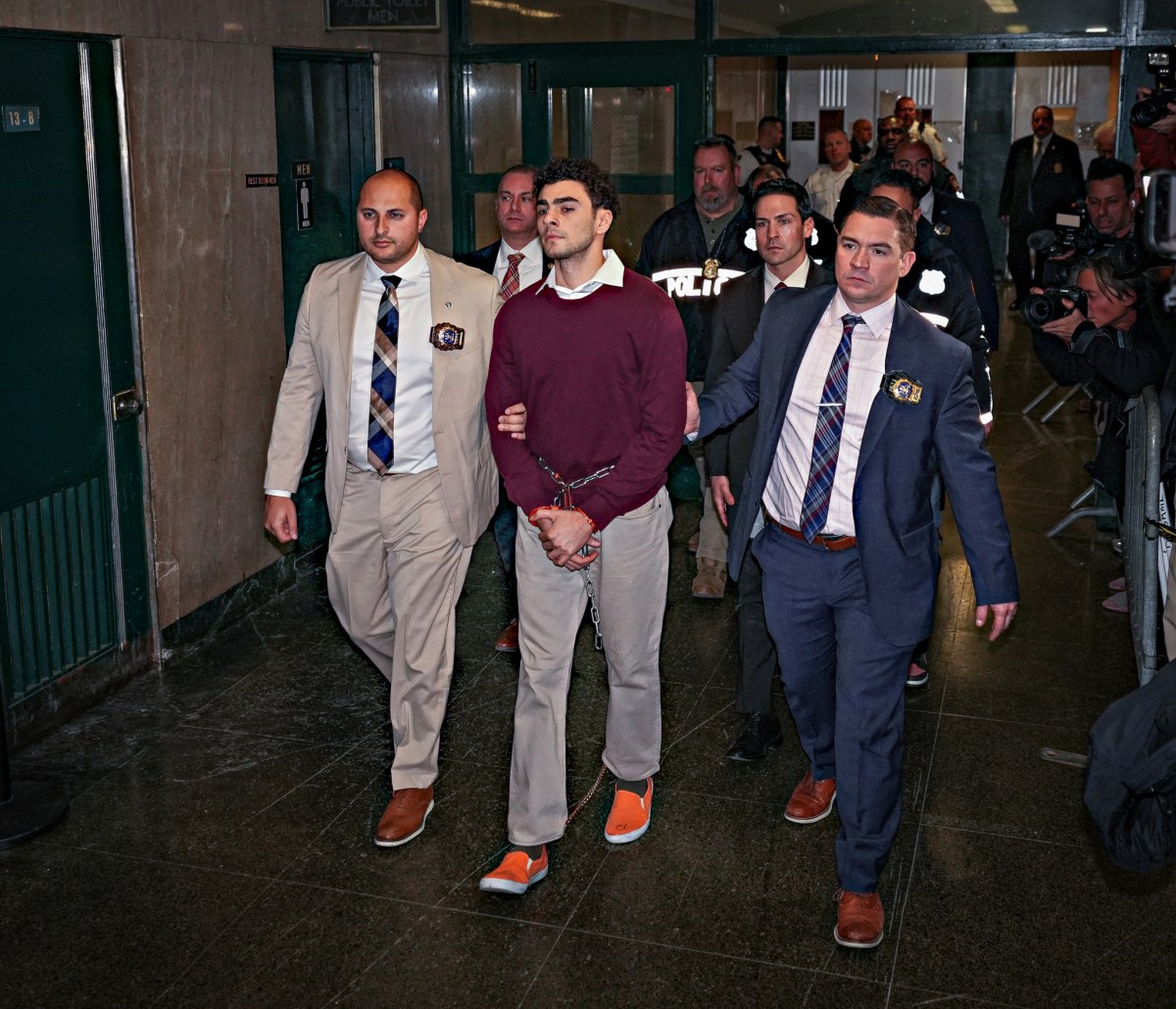KENOSHA, Wis. (Reuters) -The jury was chosen on Monday in the trial of a U.S. teenager accused of fatally shooting protesters in Wisconsin last year, with potential jurors found to be too biased about guns excused in what the judge called a “very political” case.
Kyle Rittenhouse https://www.reuters.com/world/us/case-us-teenage-gunman-kyle-rittenhouse-2021-11-01, 18, is charged with killing two men and wounding a third with a military-style rifle during unrest in the city of Kenosha on Aug. 25, 2020. The protests were sparked by a police officer’s shooting of a Black man, Jacob Blake, and came amid the sometimes violent demonstrations over racism and police brutality that rattled cities nationwide.
Rittenhouse has emerged as a hero to some conservatives who believe in unfettered gun rights and see the shootings as justified during the chaos that had engulfed Kenosha, while many on the political left have labeled him a vigilante killer.
Rittenhouse faces seven charges, including homicide in the fatal shootings of Joseph Rosenbaum, 36, and Anthony Huber, 26, and attempted homicide for wounding Gaige Grosskreutz, 27. He has pleaded not guilty. Opening arguments in the trial begin on Tuesday.
The 20-member jury will be composed of 11 women and nine men. The group will be cut to 12 for final deliberations.
Several potential jurors told the judge they had seen video clips or other evidence that hardened their views on the case, a reflection of the widespread media coverage of the shootings on Aug. 25, 2020. Others said it would not change their belief in Rittenhouse’s guilt or innocence even when presented with contrary evidence.
One man was excused after telling the judge his mind was made up already, citing his strong beliefs about the American right to bear arms.
Kenosha County Circuit Judge Bruce Schroeder criticized the 2020 presidential campaigns of both major parties for their comments on the case. Days after the shootings, then-President Donald Trump suggested Rittenhouse had acted in self-defense, while Joe Biden, Trump’s Democratic challenger and now president, accused Trump of stoking violence with his rhetoric.
“This case has become very political,” Schroeder said, urging the jurors to be “fair and impartial” for a trial he has projected will last about two weeks.
Kenosha County Assistant District Attorney Thomas Binger asked potential jurors whether they had experience with firearms, if they had taken efforts to protect their property on the night of the protests and whether they could make their own decision and not be swayed by family or friends.
Corey Chirafisi, an attorney for Rittenhouse, asked to strike one potential juror who said she would equate bringing an AR-15-style rifle to a protest with guilt.
“I don’t think a weapon like that should belong to the general public,” the excused juror said.
With ample video evidence available, there is little dispute over the facts and the two sides will likely focus mainly on how to interpret Wisconsin law, which says people can use deadly force if they “reasonably believe” it necessary to prevent their own death or great bodily harm.
YES TO LOOTERS, NO TO VICTIMS
Prosecutors are expected to argue that Rittenhouse, who says he was in Kenosha to help protect a business, was looking for violent conflict and reacted with disproportionate force. They have indicated in past court filings they plan to argue that the men who were shot had been trying to disarm Rittenhouse because he was a threat to others.
The defense will stress that Rittenhouse feared for his life in each encounter. Video evidence shows Rosenbaum charging at Rittenhouse, Huber swinging a skateboard at him and Grosskreutz armed with a pistol when he was shot.
Several potential jurors expressed worries about their safety. One woman, who said she had driven someone else’s car to the court to avoid being identified, was selected for the jury.
“I really do not want to serve on this jury,” said the woman, pointing to the partisan split in how people view the case. “I figure either way this goes, you are going to have half the country upset with you.”
(Reporting by Nathan Layne in Kenosha, Wisconsin; Editing by Ross Colvin, Howard Goller and Peter Cooney)

